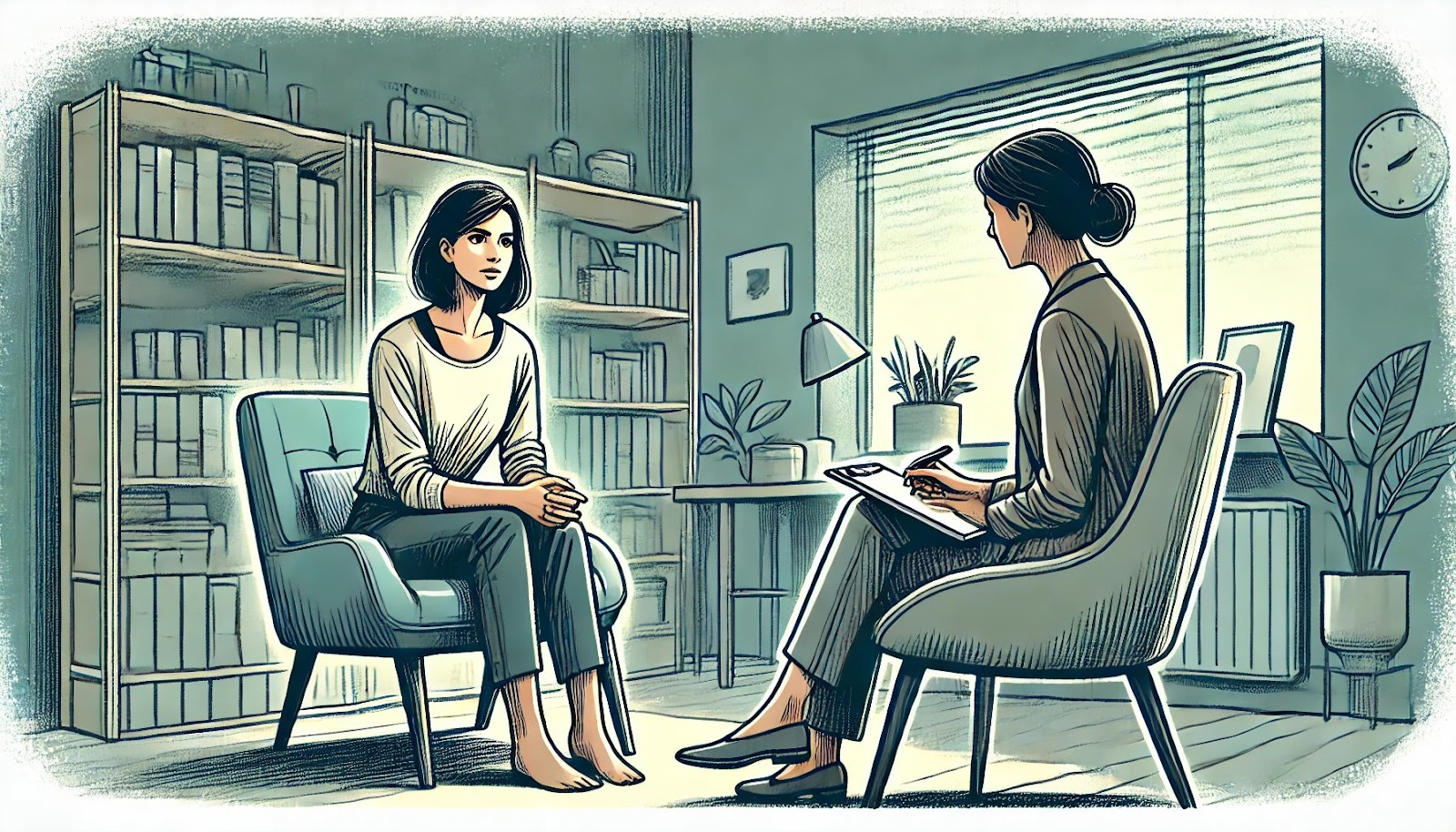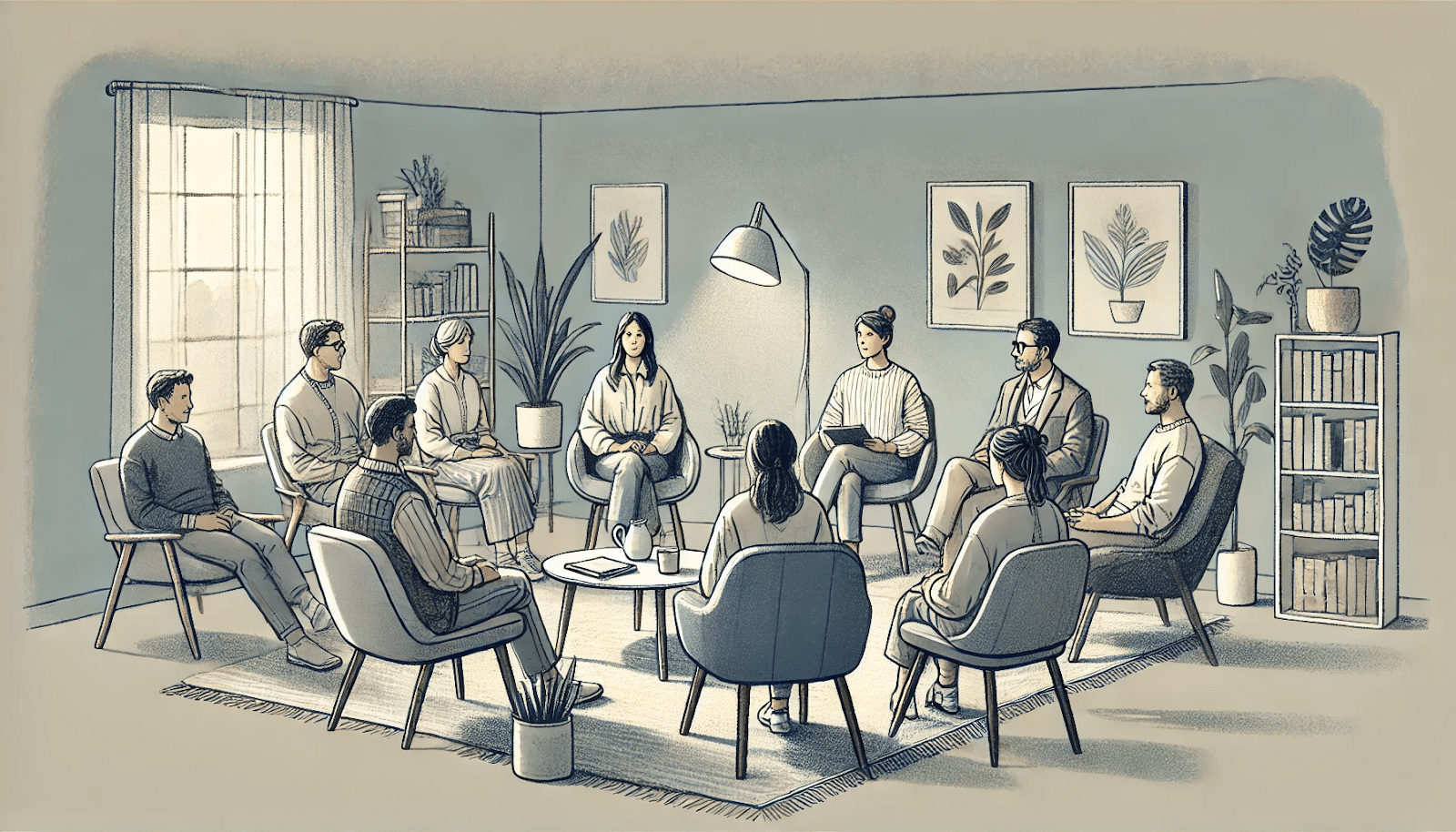Key Takeaways
- If symptoms of depression persist daily for more than two weeks, it’s time to seek help.
- Emotional distress that leads to feelings of hopelessness or helplessness should not be ignored.
- Significant changes in appetite or sleep patterns are red flags for depression.
- Experiencing suicidal thoughts or actions requires immediate professional intervention.
- A Mission for Michael (AMFM) uses a whole-person depression treatment plan at multiple behavioral health centers across California, Minnesota, and Virginia, blending traditional and holistic approaches with personalized care.
What Depression Looks Like
Understanding Common Symptoms
Depression symptoms include persistent sadness, a sense of hopelessness, and a lack of energy. These symptoms must be present for most of the day, nearly every day, for at least two weeks to consider it depression.
Besides emotional symptoms, depression can also cause physical symptoms. This combination can make it challenging to recognize depression, as people might attribute these symptoms to other causes.
Physical Effects
You might experience changes in your appetite or sleep patterns, leading to weight gain or loss and insomnia or excessive sleeping. These physical changes are often intertwined with emotional symptoms, creating a cycle that can be difficult to break.
Understanding these effects can help you identify depression in yourself or others, making it easier to seek the help you need.
Founded in 2010, A Mission For Michael (AMFM) offers specialized mental health care across California, Minnesota, and Virginia. Our accredited facilities provide residential and outpatient programs, utilizing evidence-based therapies such as CBT, DBT, and EMDR.
Our dedicated team of licensed professionals ensures every client receives the best care possible, supported by accreditation from The Joint Commission. We are committed to safety and personalized treatment plans.
Signs Professional Help is Needed
Consistent Loss of Interest
One of the hallmark signs of depression is a consistent loss of interest in activities you once enjoyed. This could be anything from hobbies to socializing. When these activities no longer bring joy, it’s a strong indicator that you might need professional help.
Changes in Appetite and Sleep Patterns
Significant changes in appetite and sleep patterns are often linked to depression. You might find yourself eating much more or less than usual, or sleeping too much or too little. These changes can exacerbate other symptoms of depression, making it crucial to address them with a professional.
Lasting Feelings of Hopelessness
Feelings of hopelessness are a significant sign that you should seek help. This overwhelming sense that things will never get better can be debilitating. If you or someone you know is experiencing these thoughts, seek immediate professional assistance.
Difficulty Concentrating
You might find it hard to focus on tasks at work or school, and even simple decisions can become overwhelming. This can lead to decreased productivity and increased frustration, further impacting your mental health. If concentration issues persist, it might be time to consult a mental health professional to look into underlying causes and potential treatments.
Suicidal Thoughts or Actions
Experiencing suicidal thoughts or engaging in self-harming behaviors is a critical sign that immediate help is needed. These thoughts can be incredibly distressing and should never be ignored. Reach out to a mental health professional or call a crisis hotline for support.
Steps to Take When Seeking Help

Start by acknowledging the need for help and understanding that seeking support is a positive and courageous decision. From there, you can begin to look into the available options for professional assistance.
Consulting a Primary Care Doctor
Your primary care doctor is often a good starting point. They can conduct an initial assessment of your symptoms and guide the next steps. They might recommend lifestyle changes like exercise, or medication, or refer you to a mental health specialist for further evaluation and treatment.
Finding a Mental Health Specialist
Once you have a referral or decide to seek specialized help, finding the right mental health specialist is crucial. This could be a psychologist, psychiatrist, or therapist, depending on your needs. Consider factors such as their experience, treatment approach, and your comfort level with them. A good fit can significantly impact the effectiveness of your treatment.
Ask for recommendations from your primary care doctor, friends, or family. You can also search online directories or contact local mental health organizations for assistance in finding a qualified specialist.
Discussing Treatment Options
Effective treatment for depression often involves a combination of therapies customized to the individual’s needs. Once you’ve found a mental health specialist, discussing treatment options is the next step. Treatment for depression can vary widely, it can be with or without medication.
Find what works best for you. Be patient with yourself as you try different options and learn what best supports your mental health.
Available Treatments for Depression
There are various treatment options available for depression, each with its own set of benefits. Find the right combination that works for you with the guidance of a mental health professional.
Here are some of the common treatment options for depression:
| Treatment Option | Description | Benefits |
| Medication | Antidepressants prescribed by a doctor. | Can help balance chemicals in the brain, reducing symptoms. |
| Counseling | Therapy sessions with a licensed counselor. | Provides a safe space to review feelings and develop coping strategies. |
| Lifestyle Changes | Incorporating exercise, healthy eating, and sleep hygiene. | Can improve overall mood and physical health, complementing other treatments. |
Additional Support Systems
Building a Supportive Network
Create a supportive network of family, friends, and mental health professionals who understand what you’re going through and can offer support and encouragement.
Try to communicate openly with them about your feelings and needs. By building a strong support system, you create a safety net that can help you through difficult times.
Community Resources
Community resources can provide additional support and information for those dealing with depression. Local mental health organizations, support groups, and online communities can offer valuable resources and a sense of belonging.

These groups often provide a space to share experiences and learn from others who understand what you’re going through. Don’t hesitate to reach out and view the resources available in your area.
AMFM: Your Next Step in Depression Treatment Journey

At A Mission For Michael, our comprehensive approach to depression treatment combines evidence-based therapies such as Cognitive Behavioral Therapy (CBT) with holistic practices to address not just your symptoms, but the underlying causes of your depression.
Recognizing when to seek medical help for depression is a crucial first step toward healing. When symptoms persist for more than two weeks or when suicidal thoughts emerge these are clear signals that professional assistance is needed.
With treatment centers in California, Virginia, and Washington, our compassionate team of therapists at AMFM provides personalized care in supportive, healing environments.
We offer multiple levels of care from residential treatment to outpatient programs ensuring you receive the appropriate support for your unique situation. Depression is treatable, and recovery is possible. By taking this step today, you’re choosing a path toward renewed hope and improved well-being.
Don’t face depression alone. Contact AMFM at 866-478-4383 for a free, confidential assessment and begin your journey to recovery with experienced guides by your side.
Frequently Asked Questions (FAQ)
What are common treatments for depression?
Common treatments for depression include therapy, medication, and lifestyle changes. Therapy options such as CBT and Interpersonal Therapy (IPT) are effective in addressing the underlying causes of depression.
Antidepressants can help balance brain chemicals, while lifestyle changes like regular exercise, a healthy diet, and good sleep hygiene can support overall well-being.
How can I support someone with depression?
Supporting someone with depression involves being patient, understanding, and empathetic. Encourage them to seek professional help and offer to accompany them to appointments if needed.
Listen without judgment and provide a safe space for them to express their feelings. Remind them that they are not alone and that recovery is possible with the right support.
Is medication always necessary for treating depression?
Medication is not always necessary for treating depression, but it can be a helpful part of a comprehensive treatment plan. Some individuals may benefit from therapy alone, while others may require a combination of therapy and medication.
Work with a healthcare provider to determine the best treatment approach for your specific needs.
How do therapy and counseling help in treating depression?
Therapy and counseling provide a safe and supportive environment to look into thoughts, feelings, and behaviors related to depression. They help individuals develop coping strategies, improve communication skills, and address any underlying issues contributing to their depression.
Through therapy, individuals can gain a better understanding of themselves and their mental health, leading to improved emotional well-being and a greater sense of control over their lives.
How do I know if my depression requires professional help?
Professional help is needed when depression symptoms persist for more than two weeks, significantly interfere with daily functioning, cause consistent loss of interest in activities once enjoyed, lead to significant changes in appetite or sleep patterns, or involve thoughts of self-harm or suicide. A free assessment with AMFM can help determine the appropriate level of care for your situation.












